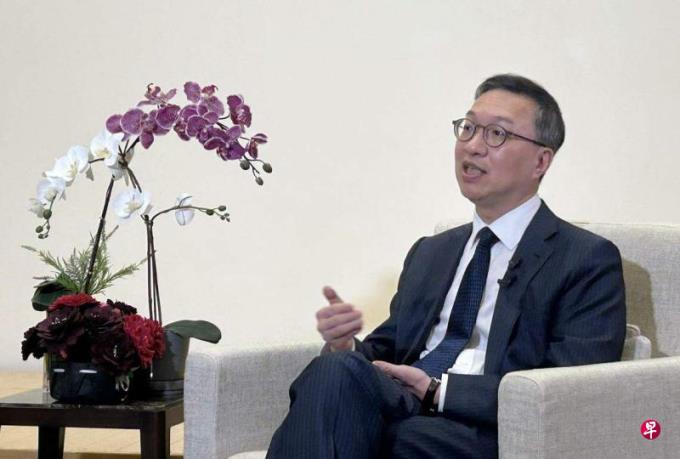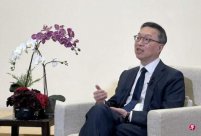
After the anti -repair routine in Hong Kong in 2019, the issue of "fake news" once became the focus of the SAR government.However, for the first time on Tuesday (April 23), the Hong Kong Government clearly stated that the newly concluded to maintain the national security regulations (that is, the 23 legislation of the Basic Law, commonly known as the Basic Law), has covered the crime of incitement, and has not planned to formulate the "fake news law".
Lin Dingguo, the director of the Hong Kong Department of Justice, pointed out in an exclusive interview with the South China Morning Post on Tuesday that there are very complicated legal issues on fake news legislation, especially how to define authentic news and distinguish between facts and views.In addition, the maintenance of national security regulations a month ago has covered the crime of incitement and prohibits the transmission of false statements that pose a threat to national security. Therefore, the official has no plan to legislate for fake news.
Lin Dingguo said that the current is even more urgent to deal with the challenge of "soft confrontation", which usually involves false, misleading and unfair statements, aiming to create unnecessary and unreasonable fear or desperate emotions, such as claiming that "Hong Kong does not notThen there is an international financial center but a site. "
Hong Kong Chief Executive Li Jiachao has further stated before attending the Executive Assembly on Tuesday that the Hong Kong media has improved information from the past.He said: "If you can use self -discipline, industry promotion and professionalism to deal with this problem, it should be the first option. We must work together and do not need to be legislative.P>
Li Jiachao emphasized that false information has a bad impact on everyone. I believe that professional media workers also hope to deal with false information together to help maintain the credibility of the news.He hopes that the industry will improve the credibility of news or network messages from a professional perspective.
Reverse information, Hong Kong's awareness of maintaining national security regulations a month ago has legislation on many related crimes.For example, in the crimes of new spy activities, collusion with overseas forces, publish false statements or misleading factual statements to the public, and intentionally ignore whether it endangers Guoan, can be sentenced to 10 years.
A reflection campaign in Hong Kong in 2019, during which a large number of "fake news" and false information appeared.Director of the Security Bureau Deng Bingqiang said in an interview with Sing Tao Daily in June 2022 that the Hong Kong government was studying the definition of "fake news" and said that fake news was harmful to national security at any time, so he was studying legislation or administrative measures for regulation.
The online media "Hong Kong 01" wrote on Tuesday, and the latest development of the incident reflected that the attitude of the Hong Kong government has changed.Although Li Jiachao's response still has a front line, Lin Dingguo, who is a government -legal consultant, is expected to "stop" on "soft confrontation" and "fake news law".
The article quotes the Hong Kong Government person to point out that maintaining the national security regulations has covered the crime of incitement and prohibits the false statement of the transmission of the threat of national security.Book the "Fake News Law".
Chen Weiqiang, a lecturer Chen Weiqiang, a lecturer in the Hong Kong University of Technology Hong Kong Specialty College, believed that the Hong Kong government decided not to establish a false news law. In addition to the above reasons, it may also cause a lot of internationally after the Hong Kong National Security Law and 23 legislation.Prosperity, there is no need to rush to launch another controversial law. "Beijing is most concerned about national security issues. Fake news may not involve national security. It is relatively urgent."
Chen Weiqiang pointed out that many Hong Kong media will occasionally publish some false news due to the need to grab news. If they are prosecuted or even in jail, there will be a lot of pressure.The official is called the fake news law, which is a good thing for the media industry.



